Blogs
The latest thoughts, insight and ideas from both the AQi and a range of other sources. Get in touch if you have a viewpoint or research you think we should include.

Computing
Could girls be the secret to boosting the UK’s growth as a technology superpower?
What if women played a more central role in responding to the rapid technological changes in our world? Girls in England outperform boys at every grade level but disproportionately don’t take Computer Science at GCSE.
Read More
Assessment
What can this year’s GCSE entries tell us to look for in tomorrow’s results?
With GCSE Results published on 22nd August, Dr Chinwe Njoku looks into the underlying data on what subjects this year's cohort took and how this has changed from previous years.
Read More
Assessment
A-level maths students hit six figures – what’s behind its popularity?
On Thursday, more than 100,000 A-level maths students in England will find out their results – 11.4% more than last year. Why the upturn? Dr Chinwe Njoku, AQA Education Insights Lead and former maths teacher, was heartened by the news and keen to look at the story behind the data.
Read More
Education Policy
What comes after ‘urgent’ for the new Education Secretary?
After the burning issues are addressed, what should come next for the new Education Secretary?
Read More
Education Policy
Labour’s oracy plans: They need clear goals
Sir Keir Starmer has said he wants to boost students’ confidence by raising the importance of speaking skills – oracy. In this previously published blog, Reza Schwitzer, AQA’s director of external affairs, applauds the ambition but warns there needs to be clear goals
Read More
Education Policy
Through the looking glass: How polling the public can help policymakers learn about themselves
Public attitude data is key to effective policymaking. Proper polling can reveal what people think about existing policies and what they want for the future. But, if looked at from a different angle, it can also help policymakers question themselves and their assumptions about the public. In this blog, AQA’s Policy and Evidence Manager Adam Steedman-Thake, reveals the lessons he learned about himself while reading a recent public attitude survey.
Read More
Assessment
Assessing oracy: Is Comparative Judgement the answer?
Oracy skills are vital to success in school and life. And yet, for many children, opportunities to develop them are missed. Educationalists are engaging in a growing debate about where oracy fits into the school system. Labour has put it at the heart of its plans to improve social mobility and an independent commission is looking at how it is taught in the classroom. This renewed focus on oracy means it is more important than ever that teachers have a way to reliably assess and understand their students’ attainment and progression. Amanda Moorghen of oracy education charity Voice 21 explains how Comparative Judgement can help with that and why it may be a game changer.
Read More
Education
TV subtitles as an aid to literacy: What does the research say?
Jack Black is probably best known in educational circles for playing a renegade substitute teacher in School of Rock. But the Hollywood star has made a more conventional foray into education by backing the use of TV subtitles to improve child literacy. Stephen Fry and the World Literacy Foundation also want parents to use their TV remotes to get children reading. So, could this simple click of a button be a solution to boost pupils’ reading skills? AQA’s resident expert on language teaching, Dr Katy Finch, casts her eye over the research to see whether it stacks up.
Read More
Data Analysis
What is left behind now education’s Data Wave has receded?
Is data the solution to all education’s issues? About a decade ago the prevailing wisdom said it was. Advocates of this Data Wave argued that harvesting internal statistics would help schools solve issues such as teacher accountability and attainment gaps. As with all waves, after crashing onto the beach they recede, leaving space for another to roll in. In this blog, teacher, author and data analyst Richard Selfridge looks at the legacy of the Data Wave to see what schools can take from it.
Read More
International Approaches
Finland & PISA – A fall from grace but still a high performer?
Finland was once recognised as one of the most successful educational systems in the world. At the turn of the millennium, it topped the PISA rankings in reading, maths and science. But by 2012, decline set in. The last set of results showed performances in maths, reading and science were at an all-time low. In this blog Dr Jonathan Doherty of Leeds Trinity University outlines some reasons that may account for the slide.
Read More
Adaptive Assessment
Adaptive Assessment: A missing ingredient in the resit recipe?
The number of students resitting their maths GCSE is growing, but the proportion getting a grade 4 or higher is falling. This situation is not only dispiriting for the young people striving to get the qualifications they need, but also for the teachers working hard to help them. How can outcomes for this cohort be improved? Bart Crisp, associate director at the Centre for the Use of Research and Evidence in Education, thinks adaptive assessment may be part of the solution.
Read More
SEND
Student success: Every milestone matters
Baroness Morgan is calling for students to be given ‘self-belief’ lessons as a way of developing their characters and preparing them for the future. She is not the first to notice that a student’s sense of their own ability and their level of success are part of a virtuous circle. But how can teachers get the snowball rolling for students with SEND or in alternative provision? In this blog, former headteacher, John Tomsett, pulls out a swimming certificate he earned more than half a century ago to use as an inspiration for others.
Read More
Assessment
Progress 8 – How much can it flex?
Progress 8 has come in for criticism in recent months for the way it combines with the Ebacc to skew schools’ focus towards academic subjects at the expense of creative and technical options. Both Labour and a Lords committee have called for reform to boost uptake of declining subjects such as D&T, dance and drama. In the second of two blogs looking at Progress 8, AQi examines whether the accountability measure could be realigned to address these concerns and if so, how could that be done?
Read More
Assessment
Progress 8 – Schools’ flexible friend?
Eight years after Progress 8 came into existence it is facing calls to be updated. Some say reforming the schools accountability measure can halt the decline in take up of the arts, while others want it to boost numbers taking vocational and technical subjects. Are its shoulders broad enough to take on such a load? In the first of two blogs on Progress 8, AQi looks at how it came into being, what problems it was designed to solve and whether it is flexible enough to be reformed.
Read More
Assessment
2023: A year in review
As we wrap up a year full of exciting developments in education, it is the perfect time to take stock of what has gone on. In this blog, editor of AQi, Anil Dawar, reflects on some of his highlights for 2023.
Read More
Extended Project Qualifications
Extended Project Qualifications: What do the statistics say about student growth?
A former student from Nottingham College won top prize in AQA’s Project Excellence Awards 2023/24 for her Extended Project Qualification on Queerness and Vampirism. Jessica Burton is now embarking on the next stage of her education journey on Cambridge University’s Foundation Year in Arts, Humanities and Social Sciences, thanks in part to the UCAS points earned through her EPQ. With that in mind, it seems the ideal moment for AQi to explore what the statistics say about how completing an EPQ can improve progression to Higher Education, degree course outcomes and social mobility.
Read More
Assessment
Digital exams: A chance to make assessment more accessible for all
A recent symposium on inclusive educational assessment at Hughes Hall, Cambridge, attracted experts from across the country. AQA lead researcher Dr Katy Finch was in the audience listening to leading academics from the fields of social exclusion, autism, dyslexia and neurodiversity. In this blog, Dr Finch draws on ideas discussed that day to deliberate on the opportunities digitising assessment offers those facing barriers in mainstream education and asks: Can we use Digital Exams as a chance to make assessment more inclusive for everyone?
Read More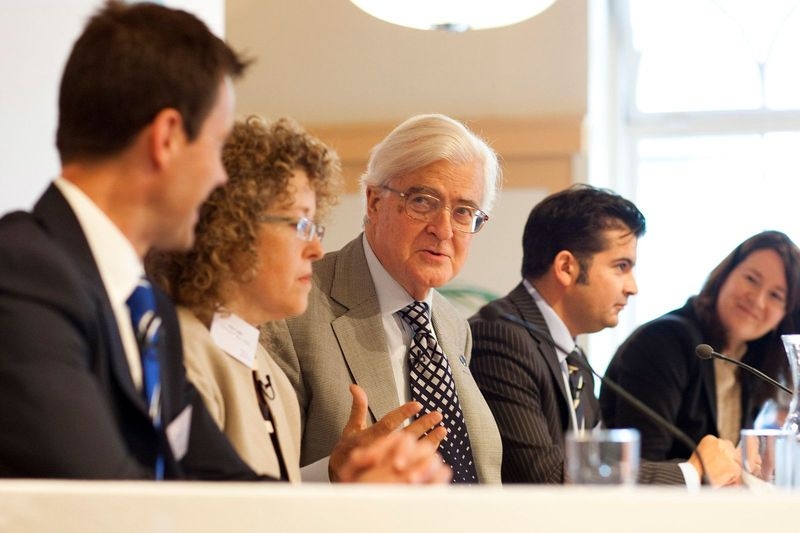
Education Policy
The Baker Reforms: What is their legacy 35 years on?
In 1988, Lord Baker created arguably the most important piece of education legislation since the war. The impact of the Education Reform Act is almost undeniably greater than anything that has come since. Its significance was immediately apparent but, if anything, it may be even more significant now. AQi investigates the legacy of the Baker education reforms 35 years on.
Read More
Assessment
Post exam analysis: How to improve student experience
Every year, once exam season ends, AQA experts look at student scripts to assess how well the exam papers were constructed. AQA’s 2023 Maths GCSE performed particularly well, even though grading returned to 2019 standards and the Advance Information used in 2022 was not there. Andrew Taylor, head of maths curriculum and Shaun Procter-Green, maths assessment lead, tell how their work redesigning the papers paid off, allowing students to better show off their skills.
Read More
Digital Exams
Let’s make it happen: The case for digital exams
AQA has published a new report outlining why now is the right time to start moving towards digital exams in some subjects. Making It Click: The case for digital examinations in England argues that far from being a revolutionary move, moving some exams off paper and onto the computer screen is the latest evolution in education in the same way that fountain pens replaced quills and scrolls morphed into printed books. In this blog, Adam Steedman-Thake, AQA’s Policy and Evidence Manager, gives the highlights of his report. He outlines the research that informed AQAs position and shows the benefits of digitally examining some subjects for learners, teachers and the education sector as a whole.
Read More
Education
Greater Manchester’s MBacc: What digital skills education could look like
Mayor of Manchester, Andy Burnham, wants Greater Manchester’s digital sector to become ‘world-class’ employing 95,000 people by 2026. Creating a Greater Manchester Baccalaureate (MBacc) to guide technical education locally is central to his plans for developing highly-skilled, workplace-ready young people. But what skills will students need if they are to succeed in the digital era and how can schools teach them? John Sibbald, one of the mayor’s advisors in his MBacc planning group, thinks it is time to switch focus from teaching ‘digital skills’ to developing students ‘digital agency’ instead.
Read More
Assessment
On-line and on-demand: The future for assessing Numeracy, Literacy and Digital Fluency?
Numeracy, Literacy and Digital Fluency are the skills that will ensure young people are prepared for the wider world when they leave education. AQA has published a new report proposing a new assessment, similar to a driving test, for all students including those who struggle in the current system. Author of “A, B, C, it’s as easy as 1, 2, 3” Towards new assessments for Numeracy, Literacy and Digital Fluency, Adam Steedman Thake, AQA’s Policy and Evidence Manager, highlights key points from his report that illuminate the problem and signpost a much-needed solution.
Read More
Education
Citizenship Studies: Inspiring civic responsibility
In a recent episode of Alistair Campbell and Rory Stewart’s popular podcast, ‘The Rest is Politics’, the pair discussed political education in school. Both spoke of their surprise at the lack of knowledge about government and the political process in students they had met and agreed the subject should be taught from an early age. But did they know that teachers already have a ready-made tool to do just that? Keen podcast listener and AQA’s Head of Curriculum for Citizenship Studies, Matt Narain, fills in the blanks to reveal how young people are being educated about the political sphere.
Read More
Assessment
Strictly Come Dancing and assessment or: How I learned to stop worrying and love Craig Revel Horwood
You may see Strictly Come Dancing is a bit of TV glitz and glamour that enlivens Saturday nights for millions. Or, if you were so inclined, you may view the perennial favourite as a weekly two-part dance exam based on expert judgement and a populist vote. In this blog, originally published in October 2015, assessment expert Kate Kelly explains what she loves about the show and why the ‘Mr Nasty’ judge Craig Revel Horwood is crucial to its fairness.
Read More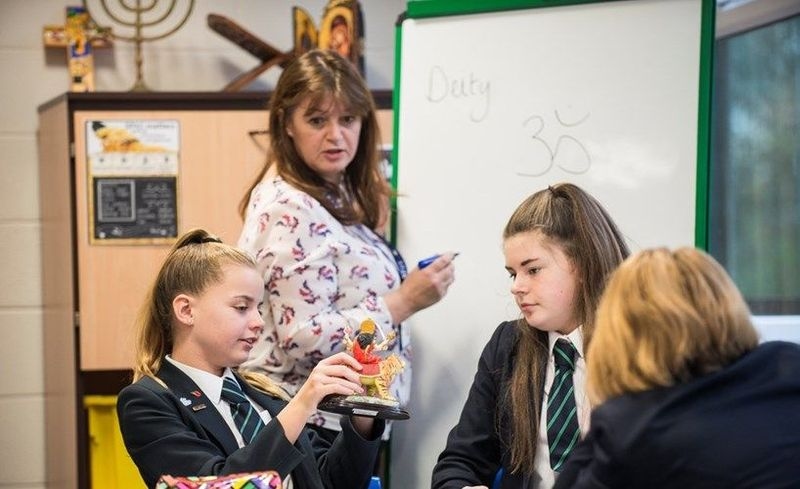
Assessment
Why does Religious Studies survive while secularism grows?
At a time when church attendances are declining and secularism is growing, it is intriguing that students are gravitating to Religious Studies in greater numbers. Are young people searching for answers in an uncertain world? Or, are they seeing a wider value in sitting GCSE Religious Studies? Former teacher, Matt Narain, AQA’s head of curriculum for the subject, offers some explanations but warns against complacency if it is to maintain its popularity.
Read More
Assessment
What lies behind the astonishing rise in Computing ?
Among this year’s slew of A-level and GCSE statistics, one subject stood out for the rising number of students choosing to take it. Computing – an umbrella for a number of subjects such as Software Engineering, AI, Computer Science and Computer Games and Animation - is the fastest growing subject at GSCE and second fastest at A-level. And this is happening despite it appearing to be suffering with a shortage of specialist teachers. So the question has to be: Why is Computing attracting so much attention from the students? Steve Kenny, AQA’s head of curriculum for Computer Science, looks at what lies behind the astonishing rise of Computing.
Read More
Assessment
The attainment Gender Gap: What role do O levels, GCSEs and Teacher Assessed Grades play?
Girls’ superior performance at GCSE level has long been known. Indeed, the gender gap for those achieving the highest grades has grown steadily since the 1980s. It peaked in 2021 under pandemic-enforced Teacher Assessed Grades, but fell with the return of exams. So what do the gender gap statistics tell us about the different ways in which boys and girls learn in class, perform in assessments and are perceived by teachers? In this blog we look at factors that lie behind the issue and try to find an answer.
Read More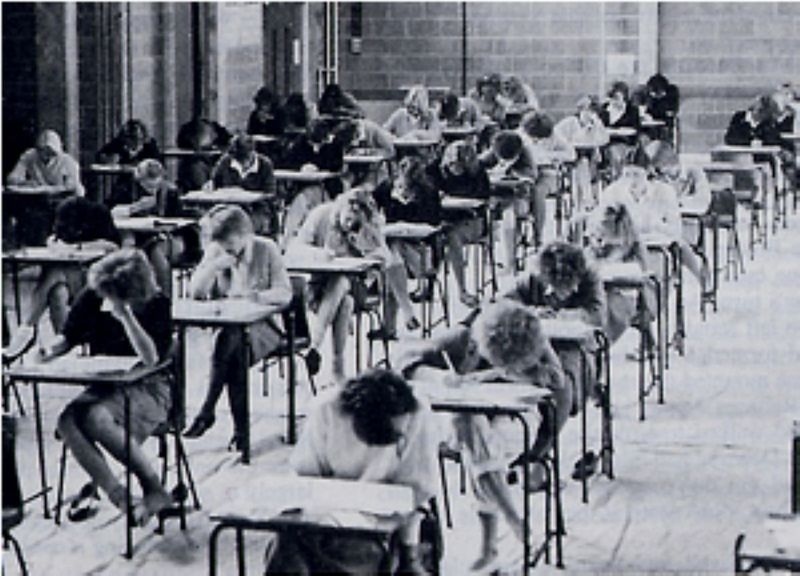
Assessment
A level results: Don’t forget cohort size matters
The sight of thousands of 6th Formers nervously opening their A Level results invariably provokes nostalgia in older generations which emerges in two well-worn phrases: ‘I did terribly in my A-levels and I did all right’ and ‘Everyone gets A’s these days.’ But do these inter-generational comparisons really hold up? AQA's Adam Steedman Thake digs into the stats to find out.
Read More
Art and Design
Creativity, Vocational skills and Progress 8
Sir Keir Starmer announced an ambition to fuse ‘knowledge and skills’ within the education system. To cement that aim, taking a creative or vocational qualification at 16 will be compulsory under a Labour government. They will then become part of existing KS4 accountability measures. Adam Steedman Thake, AQA’s Policy and Evidence Manager, asks how feasible the plan is and looks at the best way of making it happen.
Read More
Assessment
Music and attainment: What do we know?
When Sir Keir Starmer said playing music not only brings joy but also “teaches the skills and creativity essential to future learning and work,” it prompted debate. Some begged to differ with the idea that it brought wider transferable skills. So, do young musicians really pick up skills non-musicians don’t? Or are they already high achievers from more supported backgrounds with greater chances of learning them anyway? Adam Steedman Thake, a practising drummer and AQA’s Policy and Evidence Manager, investigates.
Read More
The Role of the Teacher
Labour’s oracy plans: They need clear goals
Sir Keir Starmer announced he wanted to boost students’ confidence by raising the importance of speaking skills – oracy. In an article first published in Schools Week, Reza Schwitzer, AQA’s director of external affairs, applauds the ambition but warns there needs to be clear goals.
Read More
Assessment
Knowledge and skills are most powerful in combination
A Labour government would aim to break down the divide between academic and vocational education. But what would that mean for students and schools? At the end of last year AQA took a major step into vocational qualifications through the acquisition of Training Qualifications UK (TQUK). AQA’s director of external affairs, Reza Schwitzer, and TQUK’s Chief Regulatory Officer, Katie Orr, share their thoughts.
Read More
EDI
Festival of Education 2023: What we learned
The 13th Festival of Education last week was a wonder. Two days listening to and conversing with educational experts left me with a head full of new ideas. This blog is too brief to do the event justice, but here are ten things I learned from my time wandering around the classrooms and marquees at Wellington College.
Read More
Assessment
Automated Marking: What do driverless cars and auto-markers have in common?
Rapid developments in artificial intelligence are fuelling huge leaps forward in Large Language Models that underpin chatbots. Popular natural language processing tools such as ChatGPT4 are now so sophisticated they are beginning to be used in the exam marking world. Just like driverless cars they’re not infallible so are not used in England and will not replace humans any time soon. So where are we with Automated Marking? AQA researcher and AI expert Dr David West gives an overview of the technology, its pros and cons, how it is currently used and where it might go next.
Read More
Assessment
Extended Project Qualifications: The spark to ignite a love of lifelong learning?
If a student can learn how to learn, or more accurately how they best learn, they will outperform those who haven’t. This crucial ability to understand and regulate one’s own thinking processes - known as metacognition – will also set them up for future academic success. Plenty of educators know the value of metacognition and devise classroom routines to help students cultivate it. If done well, this can provide the foundations for effective lifelong learning. Perhaps the best tool for the job is ready made and at their disposal already. AQi looks at the Extended Project Qualification as an avenue for instilling metacognition and a love of learning.
Read More
Assessment
Estonia: A small country with big results
Asked to name any of the top performing education systems in the world, Estonia is unlikely to be one of the first to spring to mind. But the unassuming Baltic country is drawing attention from educationalists around the globe for the way it is punching well above its weight. It is the top European country in the PISA rankings. Only China and Singapore rank higher. And, it was achieved on a budget smaller than the OECD average. How did the former Soviet state accomplish such a feat? AQi looks at the role digitisation plays in Estonia’s enviable education system.
Read More
Assessment
Artificial Intelligence: assessing performance claims
If the brains behind Artificial Intelligence claim their creations can perform in tests like humans then surely those results should be assessed as if they were produced by humans. AQA's Head of Research and Development, Dr Cesare Aloisi, says this is vital to maintain trust in AI but fears that is not what is happening
Read More
Assessment
Careers Advice: Plugging the leaks
Try watering a garden with a leaky hose and you’ll only get a dribble from the nozzle. The same is true of our education system. We can build up pressure by raising standards, investing in teaching, and other worthwhile interventions, but any ‘leaks’ on the way mean we’ll find children who don’t achieve the success they deserve. AQi looks at under-representation of key groups in school subject choices, and the role careers advice plays in addressing it.
Read More
Assessment
Safeguarding children and assessment marking
Safeguarding children is often seen as the responsibility of those in direct contact with them such as teachers. That is true – for example, they can spot warning signs in a student’s appearance, behaviour or speech. But there are other ways of picking up clues that a young person is at risk without even meeting them. AQA’s Safeguarding Lead, Becki Hinchliffe reveals how the exam body plays its part in looking after the welfare of students.
Read More
Assessment
Comparative Judgement: The pros and cons
Psychometrics pioneer Louis Thurstone first introduced the idea of Comparative Judgement in 1927. His pitch was that while people would be unlikely to correctly guess someone else’s height, they would be able to say with almost 100 percent accuracy whether a person was taller or shorter than another. It meant you could rank a group of people by height without having to compare every subject with every other one. This concept of an alternative marking system is almost a century old and has vocal supporters in the education world, so why is it still not more widely used? AQA’s policy team sheds some light on the topic.
Read More
Assessment
Grade Boundaries: Getting back to ‘normal’ after the pandemic
2023’s exam series will be the first ‘normal’ set for three years because of effects of the lockdown. Confidence in certification standards is based on having last year’s grades help determine this year’s. But what if you do not have that recent frame of reference. Here, in the first of a series of blogs from those involved in sitting, setting and assessing the exams, AQA’s Standards and Awarding Manager Elizabeth Pope reveals how her unit’s work got back to ‘normal’.
Read More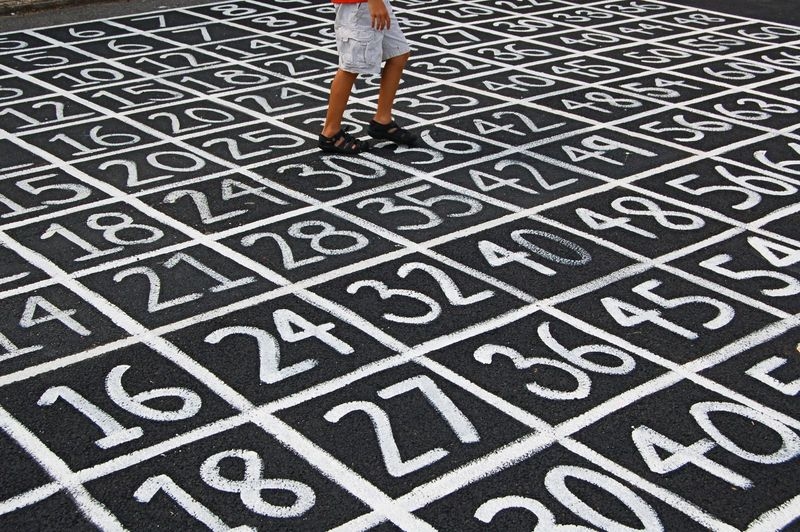
Assessment
Numeracy, data and democracy
When Rishi Sunak set out his plan for a better future for Britain in January, he placed the need to “reimagine” numeracy at the heart of it. At the time, AQi published a blog by Adam Steedman-Thake looking at the difference between maths and numeracy. Now, AQA’s Research and Development Manager, Dr Claire Tupling, offers her vision of numeracy as a vital life skill, essential for participation in a modern ‘datafied’ democracy.
Read More
Assessment
Decoding EAL: What does English as an Additional Language really mean?
More than 1.5million students are classed as having English as an Additional Language. While they all fall into that one category they are definitely not all one group when it comes to linguistic and academic ability. AQA Lead Researcher Dr Katy Finch shares her insights on how understanding what the label means can allow those students to thrive.
Read More
Assessment
If exams stay, don’t fear ChatGPT
The has been much conversation about how the advent of ChatGPT and other AI tools will affect high stakes exams. AQA's Head of External Affairs Reza Schwitzer argues that there is nothing to fear from modern technology as long as we remember to hold onto some traditional tools as well
Read More
Assessment
Social isolation and reduced academic success – could continuous assessment break the negative cycle?
Recently published Norwegian research discovered a vicious cycle between increased social withdrawal and lowered academic success – but only in boys. AQA’s Policy and Evidence Manager Adam Steedman Thake looks at the findings and considers what role continuous low stakes assessment could play in any solution
Read More
Art and Design
SEND arts barriers can be broken down
Amanda Spielman recently launched an Ofsted review of the Arts and Design curriculum with the warning that some teachers are unnecessarily lowering expectations for pupils with SEND. AQA head of curriculum for creative arts Sandra Allan explains why she agrees and shares insights on helping SEND students find ways to meet the same standards as their classmates.
Read More
Assessment
What comes first – the question or the mark scheme?
With exam season on the horizon, AQi pulls back the curtain to reveal one of the unsung heroes of assessment - the Mark Scheme
Read More
Assessment
Are reading ages old hat?
AQA’s Adam Steedman Thake examines the limitations of traditional reading tests and considers whether now is the time to ditch ‘reading ages’.
Read More
Science teaching
Science Practicals: Keep an ion them for the sake of both students and teachers
The pandemic created challenges for teachers and students across all subjects, none more so than the sciences where remote learning and social distancing hindered practical experiments. Clearly student learning was impacted, but how did two years of limited hands-on practice affect teachers, especially trainees and the newly qualified? With AQA's Big Experiment Week kicking off on February 27th, AQA's senior advice manager Kayleigh Moss considers the issue from the other side of the desk.
Read More
Assessment
GCSEs: Working harder for us than you may realise
What do you think a GCSE actually does? AQA’s Adam Steedman Thake looks at the multi-faceted GCSE to show what they offer and what would be lost if they were to go
Read More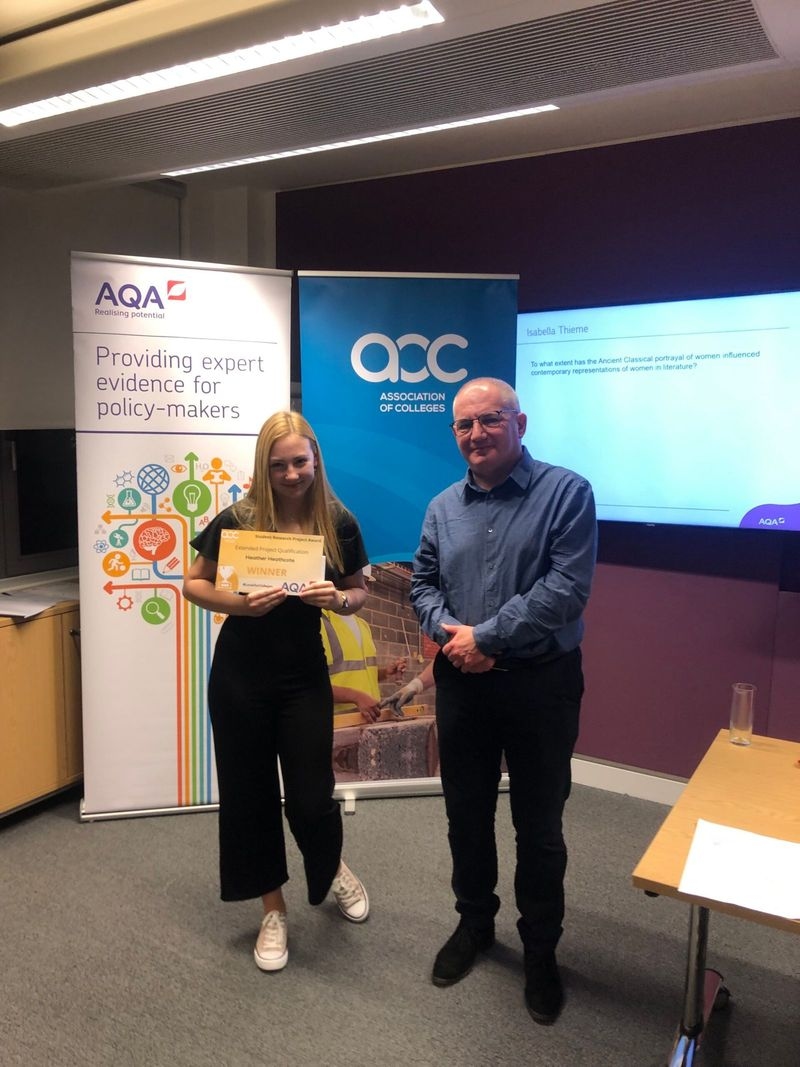
Assessment
Extended Project Qualifications: A Success Story
Heather Heathcote, 17, tells AQi how the freedom of studying for an EPQ at John Leggott Sixth Form College allowed a passion for her rescue hens to take flight, impress universities and pick up top prize at the Student Research Project Awards -a celebration of the diversity and enthusiasm young people brought to their work sponsored by the Association of Colleges supported by AQA.
Read More
Assessment
Heather Heathcote’s winning Extended Project Qualification essay
17-year-old Heather Heathcote took inspiration from the three former battery hens she adopted to produce an award winning essay and take a step up the educational ladder. You can read the results of her research on hen welfare here.
Read More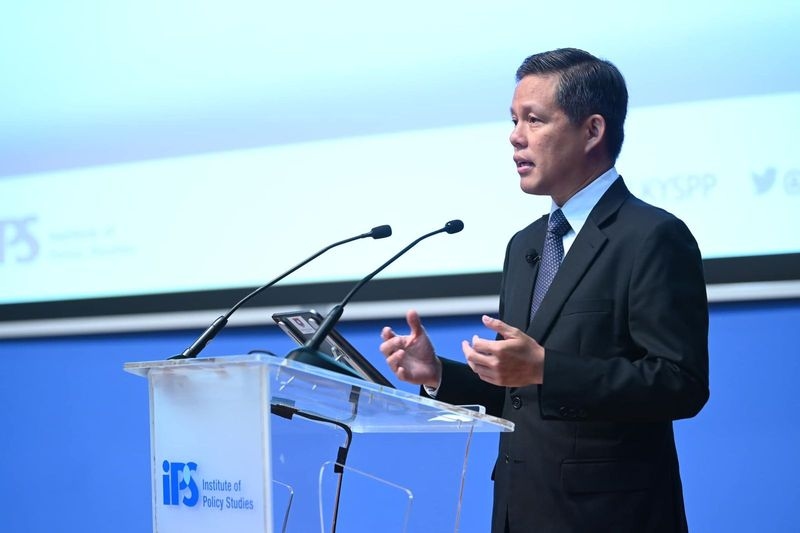
Assessment
Singapore: Global education pace setter looks for another gear to stay relevant in a challenging world
Singapore is already right near the top of global education rankings, so where does it go from there? Tim Ewington analyses a speech by the country's education minister setting out how reforming one of the leading educational systems will prepare the country for the future
Read More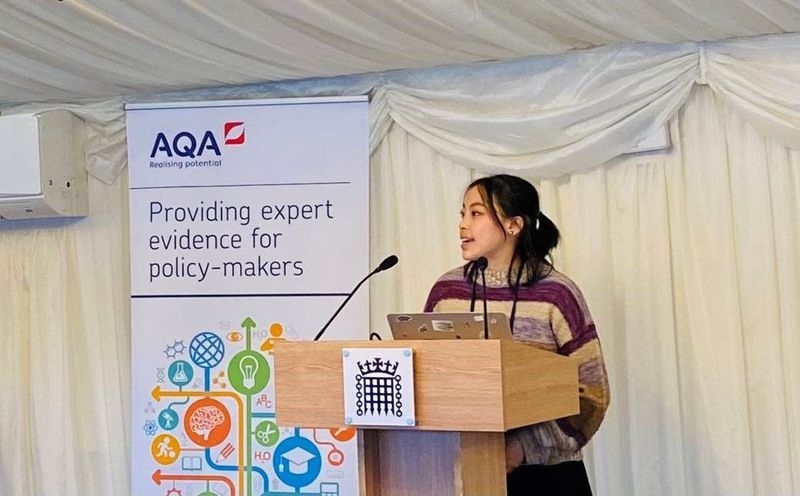
Assessment
A View From Inside AQA’s Student Advisory Group
Alison Chang is a Year 13 student studying biology, chemistry and history at City of London school for girls. She is Student Chair of AQA’s Student Advisory Group, is an active member of the European Youth Parliament and organises events for the UK branch. Here she pulls back the curtain on how the Student Advisory Group’s work influences real change in education
Read More
Assessment
Assessment reform – don’t assume what young people will think
The All Party Parliamentary Group on Schools has announced its inquiry into the need, or not, for assessment reform. AQA's Policy and Evidence Manager Adam Steedman Thake offers his insight to MPs and Peers in the group and says the answer will be found back in the classroom.
Read More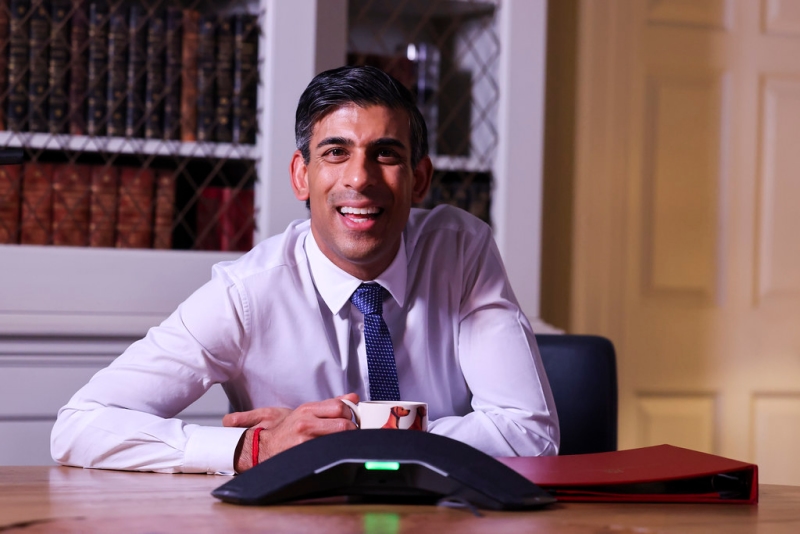
Assessment
GCSE Maths and Numeracy: They don’t equal the same
Rishi Sunak's announcement that young people will be expected to study some form of maths until 18 sparked a huge debate. Adam Steedman Thake wonders what we are really speaking about when we get into the debate about maths
Read More
Assessment
Adaptive testing – tailoring the future of assessments?
Bespoke tests could pave the way to fairer and more flexible assessments, but what are the hurdles and limitations?
Read More
Assessment
Test Anxiety Does Not Predict Exam Performance, New Research Shows
New research explored test anxiety and exam performance, finding that anxiety does not predict performance, once knowledge is controlled for. AQi digs into the detail.
Read More
Assessment
What’s it worth? GCSEs and future of testing
Prof Mary Richardson, UCL IOE, explores what GCSEs mean for test takers and the public and looks to the future of assessment.
Read More
Assessment
What do current students think about their GCSEs?
New research at the University of Manchester seeks to put young people centre stage in education research and policy discussion. Aletia Daly explains her research and shares early findings.
Read More
The Decline of English Language A-level
What has caused the huge drop in students taking English Language?
Read More
Simulation Assessment: A future tool for today?
New research explores how on-screen assessment can help measure students’ knowledge of abstract concepts.
Read More
Assessment
New research sheds light on what the future holds for skills
New research from LSE predicts softer skills will be in demand in future. AQi considers the implications for the future of assessment.
Read More
Assessment
Making assessment accessible for all
Deep dives into the evidence have revealed new insights for making assessment truly accessible for all learners.
Read More
Assessment
Summer 2022 exam series: Reflections from a Headteacher
After unprecedented disruption to their learning, headteacher Neil Renton reflects on what the Summer exam series means for students, and how we must continue to support young people.
Read More
Assessment
Online Exams – The Robots Are Coming!
Laura McInerney explores the reasons why we should welcome onscreen exams on the horizon.
Read More
Technology
What do senior leaders think about on-screen assessment?
With the publication of a new report exploring attitudes to on-screen assessment, Tim Ewington takes a closer look at what senior leaders in schools and centres think about on-screen assessment.
Read More
Levelling Up
Is it time to stop talking about the ‘Forgotten Third’?
Catherine Sezen, Association of Colleges, explores whether we should stop discussing the ‘forgotten third' of students.
Read More
Assessment
Turning the spotlight on education’s forgotten pupils
Lee Elliot Major investigates how the education system can support students that attain a grade 3 and below in their GCSE maths and English.
Read More
Assessment
The Birth of GCSEs: Four decades on, what were the reasons for GCSEs?
With the exam season nearing its end, Andrew Taylor, AQA’s Head of Mathematics, outlines the reasons why GCSEs were created.
Read More
Assessment
Making the grades – How does an exam turn into a qualification?
AQi considers how exam boards make sure that grades reflect the hard work and effort put in by students.
Read More
Assessment
What was education like when the Queen ascended to the throne in 1952?
For Her Majesty The Queen’s Platinum Jubilee, AQA looks back on what education and exams were like in 1952.
Read More
Assessment
Journey of a script – What happens after students put their pens down?
What happens after an exam is finished? AQi explains how they are turned into grades, in a matter of weeks.
Read More
Assessment
Making up an exam: How does a question paper get made?
With this year’s exam season kicking off, AQi explores the processes that help create the final exam papers that end up on students’ desks.
Read More
Assessment
A National Baccalaureate for England?
AQi looks at the National Baccalaureate Trust's recent proposals for introducing a national baccalaureate in England.
Read More
Assessment
A post-16 perspective on the EBacc
Eddie Playfair, Association of Colleges, provides a personal view of the education system, informed by decades of teaching and advising post-16 students.
Read More
Assessment
What do teachers think of the EBacc?
Digging deeper into the views of secondary school teachers.
Read More
Levelling Up
Careers advice: Why is it important and how to improve it?
AQi looks at a recent report on careers advice in England and explores the challenges and opportunities for helping students find their right track.
Read More
Assessment
The role of assessment in meritocracy
A recent book on meritocracy highlights how it has always gone hand in hand with fair assessment.
Read More
EDI
Getting in and getting on: Encouraging students to aim high and succeed
Susie Whigham, CEO of The Brilliant Club, writes about supporting students to develop the skills and confidence to progress to university and succeed when they are there – crucial factors for social mobility.
Read More
Assessment
A New Era? NEU comments on the Independent Assessment Commission
The Independent Assessment Commission published its final report recently. Andy Case from the NEU explains their findings.
Read More
Assessment
High speed internet in all schools? A key ingredient for on-screen assessment
The government has announced that every school in England will have access to high speed internet. What does this mean for on-screen assessment?
Read More
Assessment
Open-book exams: what does the evidence say?
Amid debate around the merits of open-book exams, AQi examines some of the evidence.
Read More
Levelling Up
The skills agenda: signs of what’s ahead
The progress of the Skills and Post-16 Education Bill through Parliament is yielding lively debate on the future of skills policy.
Read More
Assessment
Can digital technology transform assessment practices?
The transformative power of digital technology in formative assessment
Read More

Assessment
Time to rethink the use of tiering in GCSEs?
What do students feel about being split into tiers for their GCSEs? Dr Rhian Barrance summarises her recent research.
Read More
EDI
Economics: Where are all the girls?
What can we do about the gender imbalance in Economics?
Read More
Assessment
Who is responsible for Digital Literacy?
With the rise of digital and on-screen assessment, how can students be prepared?
Read More
Levelling Up
Levelling Up qualifications and assessment
What does the Government’s Levelling Up White Paper mean for qualifications and assessment?
Read More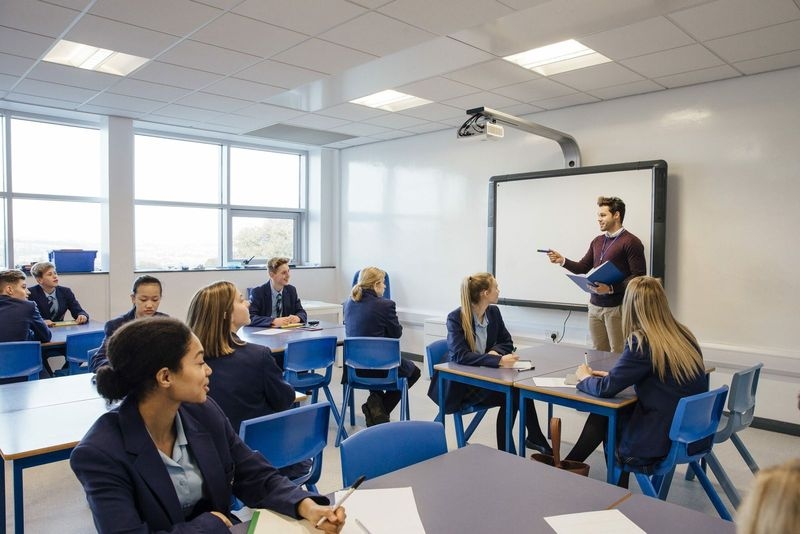
EDI
How can History be made more diverse?
With growing scrutiny of history curricula, how can we make sure History doesn’t reinforce outdated views?
Read More
Assessment
How Hard is it to Learn Soft Skills?
Everyone agrees that soft skills are important, but what is the best way to assess them?
Read More
Levelling Up
Levelling Up the EBacc
A panel debate on the EBacc organised by AQi, the assessment and qualifications insight hub
Read More
Assessment
The SAT Goes Digital – A Sign of Things to Come?
One of the most famous exams in the world is going digital.
Read More
Assessment
Digital assessment: why we’re closer than we think
With continued technological development, it’s time to explore the potential of digital assessment in earnest.
Read More
Assessment
Accessing the curriculum at home
What lessons are there from Covid-19 that could benefit home education in future?
Read More
Assessment
What role is there for students in assessment and curriculum debate?
Should students and young people be involved in education debates? What value can they bring?
Read More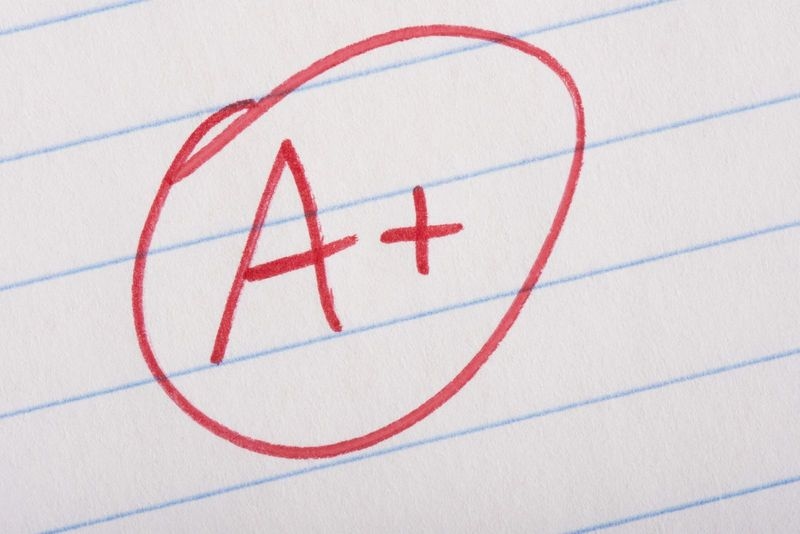
Levelling Up
Which students take degrees they’re overqualified for?
Could some students be at a more selective university or on a more financially rewarding degree? Stuart Campbell and Gill Wyness, UCL Centre for Education Policy and Equalising Opportunities, explore.
Read More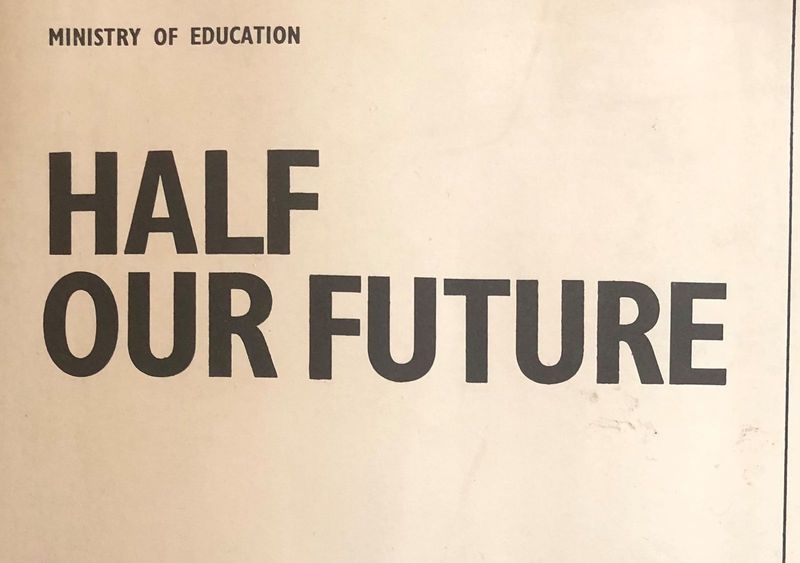
Assessment
The 1963 Newsom Report – Looking back on 60 years, but also to the future
The lessons of education policy past for the present day
Read More
Assessment
Learning Loss: What is the evidence for extending the School Day?
Amid debate about extending the school day to address Covid disruption, AQi looks at the evidence
Read More
Assessment
Four key ingredients for a high-quality assessment
The top things to consider when writing assessments
Read More
Assessment
Qualifications and Assessments 2021 – Year in Review
After a second summer of exam cancellations, AQi speaks with education leaders to review the year
Read More
Assessment
The complex case of Post-Qualification Admissions
Is technology the key to unlocking ‘post qualification’ reform to university admissions?
Read More
EDI
How to ensure diversity in English Literature?
How can we achieve a truly diverse curriculum for English Literature?
Read More
Assessment
Should students sit fewer GCSEs?
Amid debate about the 'right' number of GCSEs, AQi explores the pros and cons of sitting fewer GCSEs
Read More
Mental Health
Young Peoples’ Mental Health: Seven Key Facts
Evaluating the link between mental health, Covid-19 and KS4 assessment
Read More
Assessment
Four Key Facts for the new Social Mobility Commission
After two years of disruption to examinations, what does the new Social Mobility Commission need to know about qualifications?
Read More
Levelling Up
What does levelling up mean for qualifications?
Jonathan Simons of Public First provides his view on the role of qualifications in the Government’s Levelling Up agenda
Read More
Technology
How do schools feel about digitising examinations?
Four school leaders give us their views
Read More
Assessment
Accessible for All: How to make assessments fair?
Ruth Johnson, Senior Head of Assessment, examines the challenges in designing fair assessments and how we ensure the stories that assessments provide are the right ones
Read More
Assessment
Digital Assessment Now: A case study
In one part of the UK, digital assessment of the core curriculum is a reality
Read More
Assessment
Time to top-up? Rethinking Maths and English after 16
When young people with reformed GCSEs in Maths and English enter the labour market, how much will they remember?
Read More
Assessment
The Power of Public Education Data
Why Massachusetts makes its education data open to all
Read More
Technology
The theme to which all parties are finally turning their attention
Thoughts from Colin Hughes, AQA CEO, following the party conferences
Read More

Assessment
Why teacher assessment needs to be carefully assessed
Tom Richmond of EDSK compares notes with the primary sector
Read More
International Approaches
Finland: Going against the global trend
The country's success in zigging while others zag poses tough questions
Read More
Assessment
Could comparative judgement replace traditional exam marking?
There are rumblings of a revolution
Read More
Timeline
Qualification reform in England since 1950
A blast through the past of assessment
Scroll the Timeline
International Approaches
Singapore: probably the best organised education system in the world
The city state takes a new direction
Read More
Vocational Education
Talking to students about T-Levels
What will it take to give T-Levels momentum?
Read More